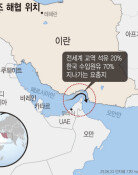Ugly Competition for Power Positions Among Koreans Overseas
Ugly Competition for Power Positions Among Koreans Overseas
Posted May. 31, 2007 03:57,
You know Mr. XXX? Dont forget to put him on the candidate list for the National Unification Advisory Counsel (NUAC).
We are the more authentic Korean organization here. Why do we have lesser seats than the other group?
Every second spring, Korean embassies across the world suffer a headache. Pressures come all around from the powerful to put their people on the candidate list of the NUAC, an advisory agency for the president. The power struggle among organizations of Koreans living overseas to have more candidates often creates a deep chasm among them.
Candidate selection is proceeding now around the world for the 13th central NUAC counsels and local heads, which will be inaugurated this July, and as if on cue, Korean communities around the globe are engaged in unseemly squabbles.
The consulate general in Los Angeles of the U.S. has sent a number of candidates for L.A.s local head of the NUAC. The NUAC Secretariat, however, is allegedly favoring yet another figure. Local Korean resident groups are grumbling as rumors have gotten around that when a candidate advocated by a Mr. K, an influential ruling party member, was not included on the recommended candidate list of the consulate, the presidential office stepped in to interfere.
Legally, it is not that consul generals have a right to recommend candidates, but that the NUAC is seeking their advice, said a top-level official at the secretariat during an interview with this newspaper on Wednesday. People are complaining just because it doesnt seem that people they support can get a recommendation for the post. But nothing is decided yet.
Lobbying for official positions abounds as well. A high-ranking official of a North American branch of the NUAC was recently found by audit committee to have paid off a thousand dollars to a central NUAC official, who accompanied Lee Jae-joung, then vice chief of the NUAC and incumbent unification minister, during his visit to the U.S. last September with President Roh Moo-hyun.
As the ugly competition gets fiercer, all strings imaginable are pulled. An official at the consulate general in Washington got a phone call from the wife of a ruling party lawmaker, M, whom he had never met before, in May 2005. She allegedly asked him to recommend a woman who went to the same high school with her for the counsel position. The woman, however, was disqualified because she had already served three terms.
The NUAC was created in 1981 after a military coup in Korea as a puppet organization for the president. Long after democratization, however, it never died away but has been getting stronger, giving birth to antipathy among Korean communities across the world. Many presidential candidates, including former president Kim Dae-jung, pledged to scrap the NUAC during their campaign. After their election, however, they instead worked hard to expand the organization. As many as 17,000 offices, including 1,700 overseas positions, and the thought of appointing anyone they wish to those seats, is just too strong of a temptation to resist, it seems. The situation is not much different this time around. After the inauguration of Rohs administration, many attempts have been made to put more progressive forces into those positions. The 13th NUAC is going to have 2,000 overseas officials instead of 1,700.
sechepa@donga.com taewon_ha@donga.com



![아침 공복 따뜻한 물 한 잔, 정말 살 빠지고 해독될까?[건강팩트체크]](https://dimg.donga.com/c/138/175/90/1/wps/NEWS/IMAGE/2026/03/05/133467930.3.jpg)



